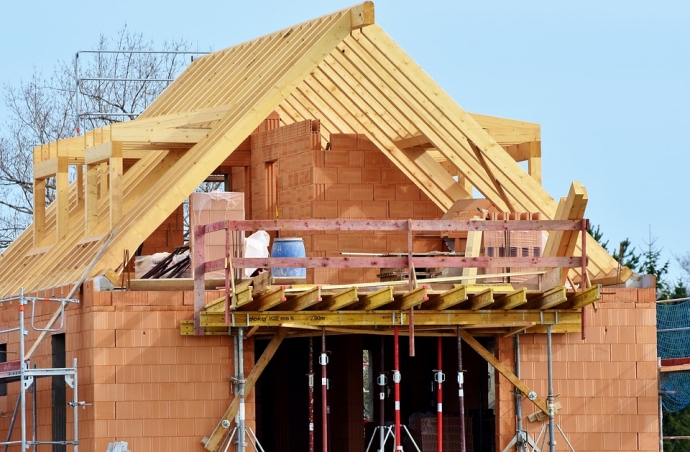Your brand new home is your fortress against the harsh natural elements, so you’ll want to make sure that it is properly prepared for anything mother nature stirs up in your area. Below, you will find four tips for making your newly built home ready for all natural elements.

Prepare for Pests
Pests are an unfortunate reality for every homeowner. Even though your home is brand new, it can still be susceptible to a pest infestation. This is especially true during the spring season. The arrival of rain and warm temperatures brings hibernating bugs back to life and in search of food and shelter. Pests tend to find that human homes provide an abundance of both. To prepare your home for the upcoming pest season, call a professional pest control specialist to inspect your home, perform a preventative spraying, and to install pest traps in and around your home.
Seal It
Before winter weather arrives, do a thorough inspection of all windows and doors in your home. Check for holes or gaps in the caulking of the windows. Also, check for gaps between the edges of doors and door frames. If you can see any light or feel a breeze from these areas, install a layer of weatherstripping to your doors and/or windows for added insulation and protection. Installing weatherstripping to your doors and windows can also help keep cool air in your home during the hot summer months to reduce your energy bill and keep you and your family comfortable.
Protect Your Pipes
The winter season can cause severe damage to your indoor plumbing system by freezing your pipes to the point where they crack or shatter. There are a few ways to prevent the new plumbing system in your brand new home from being damaged. You can install foam insulation around any exposed pipes to protect them from the weather. Additionally, leave one of the faucets in your home barely dripping during the night so that water in the pipes are flowing and less likely to freeze.
Surviving the Storms
Spring and summer bring a heavy amount of lightning storms. You can protect your brand new home from lightning damage and electrical overloads by taking a few precautionary steps. Install a lightning protection system to help manage any lightning strikes that may occur. Also, unplug all electronic devices and appliances when a lightning storm moves into your area.
It’s always beneficial for you, as a homeowner, to read over your homeowner’s insurance policy to make yourself familiar with which natural disasters are covered and aren’t covered so you can protect your home accordingly.

